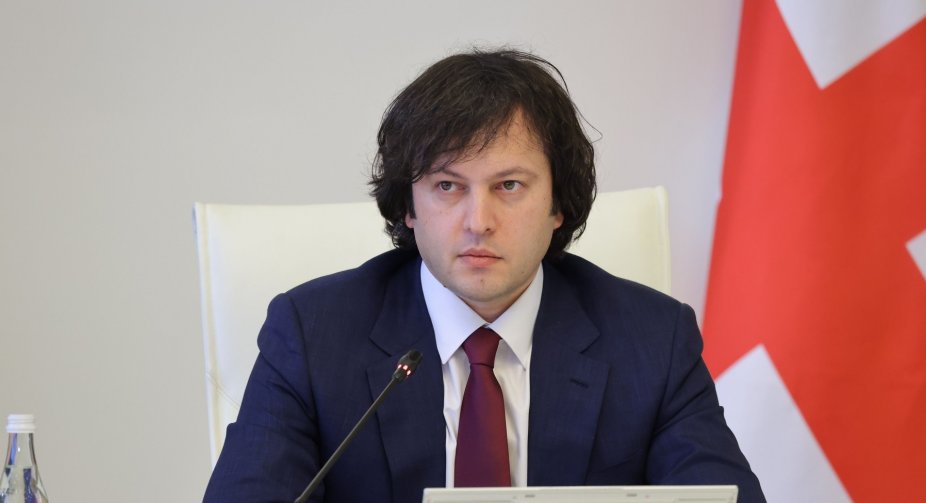Georgian Prime Minister Irakli Kobakhidze on Thursday alleged he had received an “alarming threat” from an unidentified European Commissioner during a recent phone conversation concerning the contentious Foreign Influence Transparency Bill.
In an official statement, Kobakhidze claimed several high-ranking foreign politicians had resorted to "open blackmail against the Georgian people and the government they have elected” and added, “we have long been accustomed to this kind of insulting blackmail, and it has essentially lost its relevance for both society and the government.”
Kobakhidze shared the "most alarming threat" he allegedly received during the phone call. He recounted, "the European Commissioner listed a number of measures that Western politicians can take after overcoming the veto on the transparency law, and while listing these measures, he mentioned - 'You see what happened to Fico and you should be very careful.'"
This reference to Slovak Prime Minister Robert Fico, who recently suffered a terrorist attack and is still undergoing treatment, in the context of threats related to the transparency law, was particularly alarming, according to Kobakhidze. "Preliminary information suggests that traces of the special services of one of the countries, particularly connected with the Global War Party, are behind the attack on the Prime Minister," he emphasized.
In his previous statements, Kobakhidze accused the unidentified "Global War Party" of attempting to spark unrest in Georgia and drag the country into the ongoing Russia-Ukraine conflict. Without specific references, several members of the ruling party have mentioned masons and freemasons in relation to the "party."
Kobakhidze asserted he felt it necessary to inform the Georgian society about this threat as a preventive measure. "The parallel drawn with the attempted assassination of Robert Fico reminds us that in the form of the Global War Party, we are dealing with an extremely dangerous force that will do anything to bring chaos to Georgia," he stated. He concluded with a message of resilience and optimism: "I am sure that their plans will not be successful this time either, and Georgia will definitely maintain peace and political stability, which is a necessary condition for the country's development."
In March, the ruling Georgian Dream party resubmitted the bill it had to retract last year due to mass protests and passed it in its third and final reading earlier this month. This prompted the President to use her veto power, branding the bill a “Russian law.” According to protocol, Parliament will first vote on the president's motivated remarks. If these are dismissed, a subsequent vote on the bill, requiring at least 76 supporters, will determine whether the veto is overridden.
The constitution does not stipulate a timeframe for Parliament to decide on overriding or accepting a veto once it's been issued. Despite widespread protests in Georgia against the bill and significant criticism from partner states urging its rejection, the ruling majority says it will override the veto.
The bill designates non-governmental and media organizations whose income exceeds 20 percent from abroad as entities serving the interests of a foreign power.
They are required to register in a specialized registry and submit financial declarations annually, with failure resulting in a 25,000 GEL fine upon first offense.
The Council of Europe Venice Commission’s report this week “strongly recommended” that the law be withdrawn in its current form, warning that the bill’s inherent flaws could severely undermine freedom of association and expression, the right to privacy, public participation, and the prohibition of discrimination. Kobakhidze responded that the opinion “lacked substantial legal arguments” and was “full of absurd entries and lies.”






